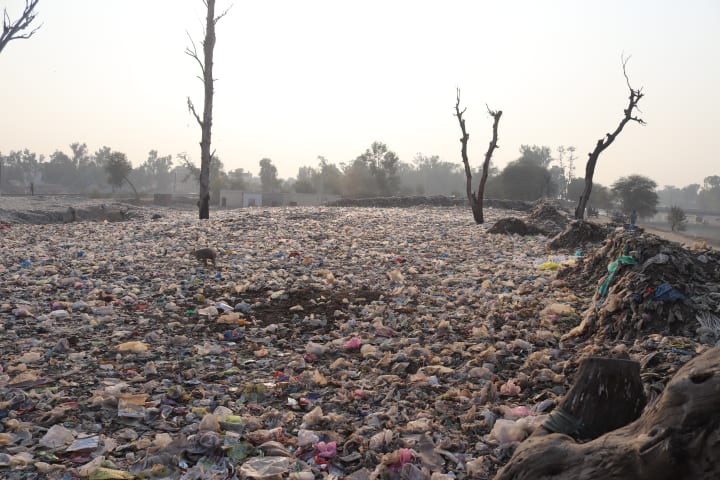The Impact of Climate Change on Global Economy
Climate Change on Global Economy

The Impact of Climate Change on Global Economy
Climate change has been one of the biggest concerns for the world for several decades now. The impacts of climate change are far-reaching, affecting various aspects of life including the environment, health, and the economy. In this article, we will be discussing the impact of climate change on the global economy and how it affects different sectors.
The most significant impact of climate change on the economy is through the damage caused by natural disasters such as hurricanes, droughts, and floods. These events disrupt local economies, causing loss of infrastructure, crops, and human lives. In addition, businesses and industries are affected, resulting in loss of production, increased insurance costs, and reduced competitiveness. These events have resulted in the need for rebuilding and rehabilitation efforts, which can be expensive and take several years to complete.
Agriculture is one of the sectors most affected by climate change. Changes in weather patterns such as droughts and floods can reduce crop yields and affect food security. This results in food price increases, leading to economic and social problems, especially for the poorest communities. The fishing industry is also at risk from climate change, as changes in ocean temperatures and acidification can alter fish populations, leading to a decline in catch and reducing the income of fishing communities.
Tourism is another sector that is vulnerable to the impacts of climate change. Changes in temperature, weather patterns, and the frequency of natural disasters can affect the number of tourists visiting an area, reducing the economic benefits for local communities. In addition, rising sea levels and erosion can destroy tourist infrastructure, reducing the appeal of destinations and negatively affecting the economy.
The energy sector is also affected by climate change, as increasing greenhouse gas emissions contribute to global warming. This has led to increased investment in renewable energy technologies such as wind and solar power, providing opportunities for new industries and employment opportunities. However, it also results in the phase-out of fossil fuel industries, causing job losses and reductions in revenue for some countries.
Climate change has a far-reaching impact on the global economy, affecting various sectors and communities. Natural disasters, agriculture, tourism, and energy are some of the sectors most affected. It is important for governments, businesses, and individuals to work together to mitigate the impacts of climate change and promote sustainable economic growth. This can be done through investments in renewable energy, adaptation measures to reduce the impacts of natural disasters, and the development of sustainable tourism practices. By taking action now, we can secure a sustainable future for our economy and the planet.

To further reduce the impact of climate change on the global economy, there are several steps that can be taken.
Encouraging Energy Efficiency:
Governments can encourage energy efficiency by providing incentives for businesses and individuals to adopt energy-efficient technologies, such as efficient lighting, heating and cooling systems, and vehicles. This not only helps to reduce greenhouse gas emissions but also results in cost savings, making it a win-win situation.
Promoting Sustainable Transport:
Encouraging the use of sustainable transport such as public transport, cycling, and walking can reduce the emissions from the transportation sector, which is a significant contributor to greenhouse gas emissions. This can be achieved by investing in infrastructure, providing incentives for the use of sustainable transport, and promoting awareness of the benefits.
Developing Renewable Energy:
Encouraging investment in renewable energy sources such as wind and solar power can help to reduce greenhouse gas emissions and promote sustainable economic growth. This can be achieved by providing tax incentives, subsidies, and support for research and development in renewable energy technologies.
Adaptation Measures:
Governments and businesses can take measures to adapt to the impacts of climate change, such as improving infrastructure to reduce the damage from natural disasters and investing in drought-resistant crops to ensure food security. This will help to reduce the economic impact of climate change and improve the resilience of communities.
Promoting Sustainable Land Use:
Encouraging sustainable land use practices such as agroforestry, sustainable agriculture, and reforestation can help to reduce greenhouse gas emissions and promote sustainable economic growth. This can be achieved by providing education, training, and incentives for sustainable land use practices.

Carbon Pricing:
Implementing a carbon pricing mechanism such as a carbon tax or a cap-and-trade system can encourage businesses and individuals to reduce their greenhouse gas emissions. This can help to shift the economy towards low-carbon solutions and promote sustainable economic growth.
Investment in Climate-Resilient Infrastructure:
Investing in climate-resilient infrastructure such as sea walls, drought-resistant crops, and water management systems can help to reduce the impact of climate change on communities and the economy. This will improve the resilience of communities and reduce the costs of recovery from natural disasters.
Promoting Sustainable Consumption:
Encouraging sustainable consumption practices such as reducing waste, conserving energy, and reducing water usage can help to reduce the environmental impact of the economy and promote sustainable economic growth. This can be achieved by providing education, awareness campaigns, and incentives for sustainable consumption practices.
Encouraging Corporate Social Responsibility:
Encouraging businesses to adopt corporate social responsibility practices such as reducing greenhouse gas emissions, conserving energy, and promoting sustainable supply chain practices can help to reduce the impact of the economy on the environment. This can be achieved by providing incentives and promoting awareness of the benefits of corporate social responsibility.
International Cooperation:
Addressing the impacts of climate change requires international cooperation. This includes sharing knowledge, technology, and resources to reduce greenhouse gas emissions and promote sustainable economic growth. It also includes working together to provide financial and technical support to developing countries to help them adapt to the impacts of climate change.
In conclusion, climate change is one of the biggest challenges facing the global economy. Its impacts are far-reaching and can have significant economic consequences, including increased costs, reduced economic growth, and increased poverty. To mitigate these impacts, it is essential that we take action to reduce greenhouse gas emissions, promote sustainable economic growth, and improve the resilience of communities. This can be achieved through a combination of measures, including energy efficiency, sustainable transport, renewable energy, adaptation measures, sustainable land use, carbon pricing, investment in climate-resilient infrastructure, sustainable consumption, corporate social responsibility, and international cooperation. By taking action now, we can ensure a sustainable future for both the economy and the planet.
About the Creator
TRUE
I'm just a fact dealer.....
Enjoyed the story? Support the Creator.
Subscribe for free to receive all their stories in your feed. You could also pledge your support or give them a one-off tip, letting them know you appreciate their work.






Comments
There are no comments for this story
Be the first to respond and start the conversation.